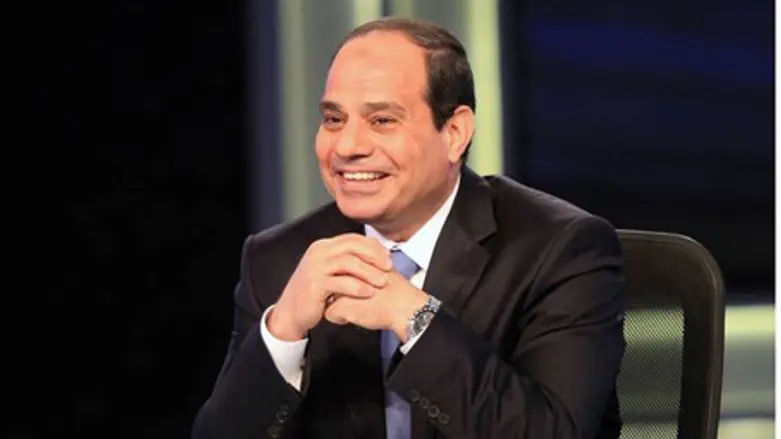
Egyptian President Abdel Fattah al-Sisi told visiting U.S. Secretary of State John Kerry on Saturday that any global coalition against terrorism should battle not just “Islamic State” (IS, formerly ISIS) but other groups as well, Reuters reports.
Egyptian security officials have said Islamic State has established contacts with Ansar Bayt al-Maqdis, the Sinai-based terrorist group which has killed hundreds of security forces since the army toppled Islamist President Mohammed Morsi last year.
The group has also claimed responsibility for several rocket attacks that targeted the Israeli resort city of Eilat.
Sisi reportedly told Kerry said any international coalition to combat terrorism "should be comprehensive and not exclusively target a specific organization or eradicate a certain terrorist hotspot", the presidency said in a statement.
"Rather, the coalition should extend to encompass combating terrorism wherever it exists in the Middle East and African regions," the statement said, according to Reuters.
Sisi also expressed concerns about foreign fighters in IS and the danger they posed to their home countries because of Western passports that can get them through airports undetected.
The statement added that Sisi "warned of the repercussions from the involvement of foreign militants in ongoing regional conflicts."
Egypt's foreign minister, backing Washington's call for global action to counter the threat, said earlier in a news conference with Kerry that IS terrorists in Iraq and Syria were forging ties with other extremist groups in the region.
Groups that share Islamic State's ideology and "take Islam as a cover" must be dealt with, said Foreign Minister Sameh Shukri, according to Reuters.
Kerry said earlier on Saturday that Egypt “is on the frontline of the fight against terrorism, particularly when it comes to fighting extremist groups in Sinai.”
Kerry visited Egypt to gain support for a broad coalition of countries to fight IS. He had already secured the backing of 10 Arab governments, including Egypt, alongside Iraq, Jordan, Lebanon and six Gulf States, including Saudi Arabia and Qatar.
The U.S. top diplomat, however, has rejected the possibility that Iran would be part of the initiative as well, saying on Friday it would be inappropriate for Iran to attend an upcoming meeting in Paris on how to defeat IS.
Last week, it was reported that Iranian Supreme Leader Ayatollah Khamenei had authorized his army to coordinate joint military operations with the United States against IS in Iraq.
The State Department later clarified it has "no plans" for any military coordination with Iran in the fight against IS.